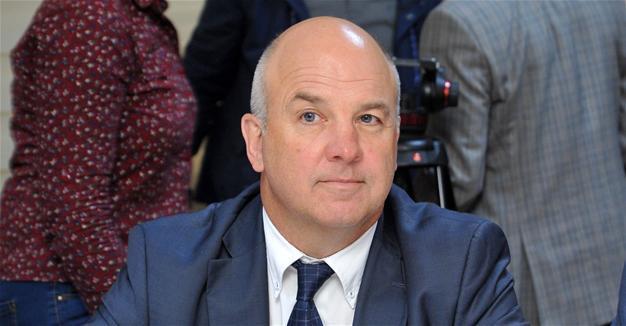CoE Commissioner urges Turkey to repeal emergency decrees
Sevil Erkuş - ANKARA

AA photo
Council of Europe Commissioner for Human Rights Nils Muižnieks has stressed the urgency of reverting to “ordinary procedures” and safeguards in Turkey by ending the post-coup attempt state of emergency as soon as possible. Muižnieks also called on the Turkish government to halt the closure of media outlets, associations, private companies, and end the transfer of their assets to the Treasury.“The Commissioner notes with regret the Turkish government’s intention to prolong the state of emergency for a further 90-day period, but hopes that this period can be curtailed. In any event, the Turkish authorities should immediately start repealing the emergency decrees, starting with the provisions which allow the highest degrees of arbitrariness in their application and stray the widest from ordinary guarantees,” said a memorandum issued by Muižnieks on Oct. 7
The memorandum, which follows the commissioner’s visit to Ankara on Sept. 27-29 examines the criminal law aspects of emergency measures; administrative measures affecting public employees, civil society, the private sector, and family members of suspects; the question of legal remedies against these measures; and a number of other issues.
The emergency decrees adopted in Turkey since July “created very far-reaching, almost unlimited discretionary powers for administrative authorities and the executive in many areas, by derogation from general principles of rule of law and human rights safeguards ordinarily applicable in a democratic society,” it said.
Muižnieks said he found it very problematic that the Turkish government already introduced amendments to many laws through emergency decrees, thus entirely bypassing ordinary legislative procedure. He said it would be appropriate to repeal these amendments at the end of the state of emergency and re-submit them, if necessary, to parliament for enactment after a proper parliamentary procedure.
Concern on replacing mayors
The commissioner expressed concerns about emergency decrees allowing the Turkish government to replace mayors rather than allowing municipal councils to replace them or renewing the local elections at the earliest opportunity. “This poses fundamental problems vis-à-vis principles of local democracy and is likely to create resentment in the local populations concerned, as it can be perceived as a collective sanction,” read the report.
Muižnieks noted that it was not yet certain whether the Constitutional Court is competent to receive individual applications from people claiming wrongful dismissal in the post-coup probes.
“At any rate, the risk for a huge number of applications to the European Court of Human Rights is very present and tangible,” he said, urging the Turkish authorities to communicate very clearly and precisely about the legal remedies for persons affected by the emergency measures.
Halt closure of institutions
He also referred to measures that target directly or are liable to affect family members of suspects in an automatic fashion, saying “any measure treating family members of a suspect also as potential suspects should not exist in a democratic society, even during a state of emergency.”
Muižnieks called on Turkish government to put “an immediate stop to the closure, on the basis of a simple administrative decision or an executive order, of legal persons, such as newspapers, TV stations, associations, private companies, etc., and to the transfer of their assets to the Treasury.”
The authorities must reverse the measures already taken in this respect when this is still possible he said, adding that at any rate, the final dissolution or transfer of property should never occur without a proper judicial review with a final judgement, which must include the possibility of remedial action where necessary, including compensation.
Call for ‘transparent criteria’ on FETÖ membership
As regards on-going criminal proceedings, among the most immediate human rights concerns are consistent reports of allegations of torture and ill-treatment, Muižnieks said. He stressed that he does not “automatically give credence” to such allegations, but observes that the extension of the custody period to 30 days, practical changes to procedures for obtaining medical reports, and drastic restrictions to access to lawyers, as well as limitations on the confidentiality of the client-lawyer relationship, contributed to the persistence of such allegations, according to the report.
The commissioner urged the Turkish authorities to render much more transparent the criteria to be retained to prove membership of FETÖ/PDY and other terrorist organizations, the degree beyond which contacts with these organizations can incur sanctions, as well as the kinds of information and evidence the authorities must assess to establish liability. At a minimum, persons should be able to have access to evidence against them and make their case before a decision is taken, the report read.
















